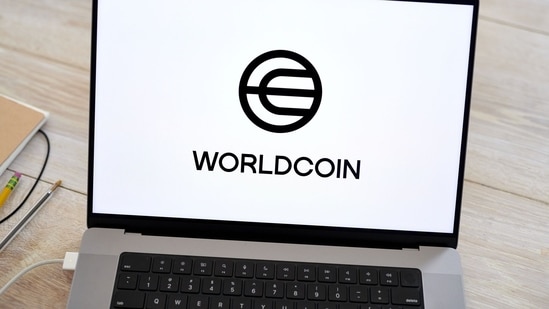Aug 19, 2024 02:20 PM IST
Multiple governments worldwide are battling with Sam Altman, either banning his Worldcoin project’s operations or investigating its data processing
Governments worldwide are not buying Sam Altman’s Worldcoin initiative, which is a plan to distinguish humans from AI or robots by scanning the eyeballs of every person on earth as a pre-requisite for making crypto payments, according to a Wall Street Journal report.

What is Worldcoin?
Worldcoin was conceived when in 2019, Altman got the idea of building technology to distribute universal basic income to everyone on Earth whose livelihoods got disrupted by AI.
Also Read: Burger King lawsuit against Pune eatery and their counterclaim dismissed by district court
Worldcoin has scanned and verified more than six million people across almost 40 countries so far. What’s more is that users get immutable codes in an online “World ID” passport, as well as a payout in Worldcoin’s WLD cryptocurrency.
Where and why has Worldcoin been opposed by governments?
Worldcoin, registered in the Cayman Islands, has already been raided in Hong Kong, blocked in Spain, fined in Argentina and criminally investigated in Kenya. A ruling also looms as to whether it can continue to operate in the European Union (EU).
The concerns of the government include how Worldcoin handles user data, trains its algorithms, and avoids scanning children.
However, Worldcoin says its technology is completely private, with orbs deleting all images after verification, and that iris codes contain no personal information, unless users permit Worldcoin to train its algorithms with their scans. Encrypted servers hold the anonymized codes and images.
In Kenya, where it got half a million sign-ups within three months of launching, police launched a criminal investigation into the collection of biometric data.
Kenya’s parliament also held a public inquiry, with Altman and co-founder Alex Blania testifying. They also met Kenya’s president, William Ruto, last year in California.
Hong Kong banned Worldcoin after finding out that it was retained iris images for up to a decade.
In Argentina, authorities cited abusive user terms for launching investiations.
Spain accused Worldcoin of scanning children at a large scale.
In Bavaria, Worldcoin has a data-processing subsidiary. However, the EU has started an inquiry into Worldcoin.
How does Worldcoin scan and use data?
It uses a basketball-sized chrome device called the Orb to scan irises, which it says remains relatively unchanging and can distinguish humans better than fingerprints or faces.
The total WLD is roughly worth around $15 billion and Worldcoin still controls 97% of WLD, meaning the price is set by a small pool of currency in circulation.